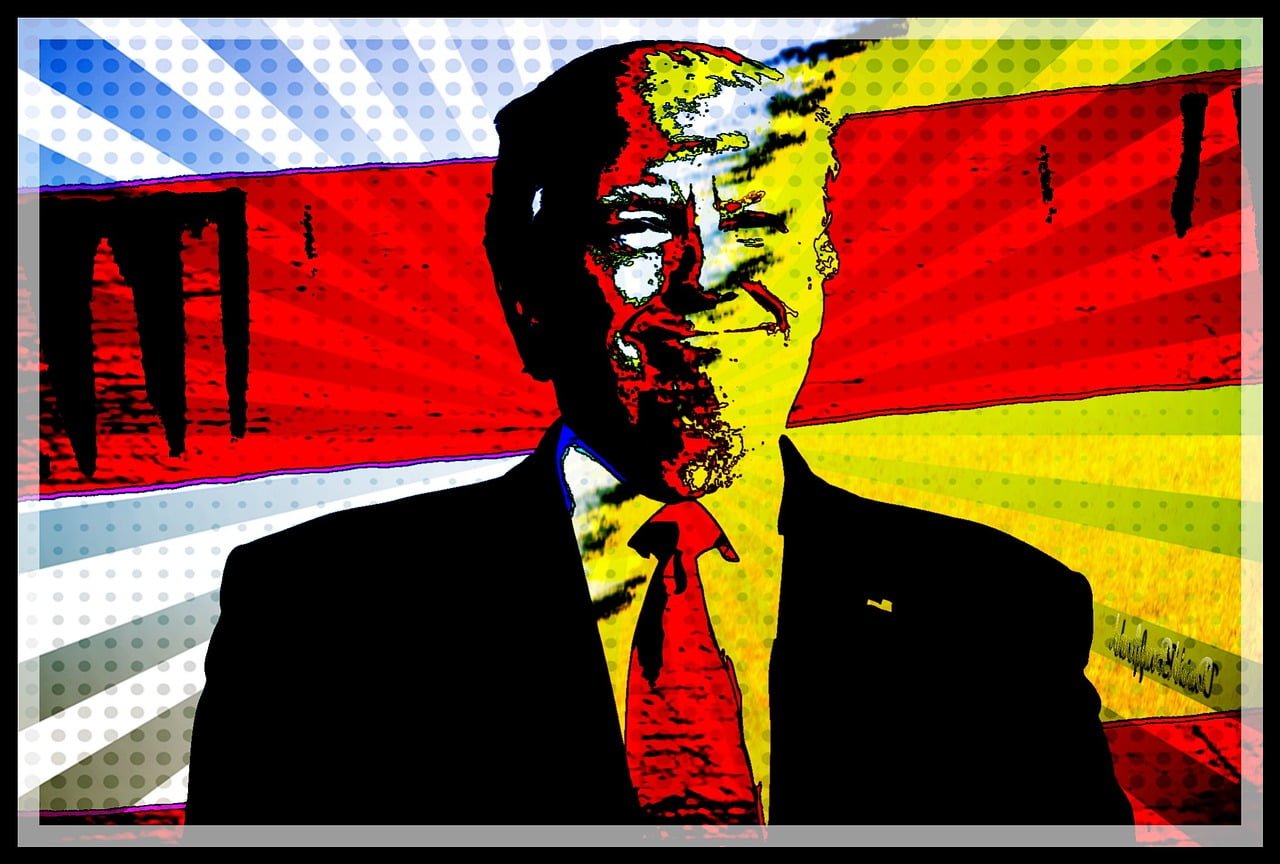The same baker whose decision, on religious grounds, not to bake a special wedding cake for a same-sex wedding was upheld by the U.S. Supreme Court is now back in court arguing that he should not be punished for refusing, also on religious grounds, to bake a cake to honor a gender transformation for a transsexual.
Disputes concerning businesses that sell wedding services – including florists, calligraphers, photographers and videographers – and have similar religious objections to being required to assist in same-sex weddings are being litigated.
Such cases also raise questions like: should a religious Jewish baker be required to bake a wedding cake in the shape of a swastika for a Nazi wedding?; should an African American florist be forced to make a floral arrangement spelling out “hate n*gg*rs” for the wedding of two white supremacists?; or should a photographer have to take pictures of an exchange of wedding-like vows between a man and his three so-called wives?
While some have seen such cases as an all-or-nothing clash between the rights of people not to be forced to participate in activities to which they are opposed because of strong religious beliefs verses the rights of people not to be discriminated against based upon characteristics such as sexual preference or sexual identity, there is an easy way to balance these apparently competing interests, says public interest law professor John Banzhaf.
Indeed, an appellate court recently struck just such an interesting balance between the free speech and religious freedom rights of businesses which oppose messages they would be forced to send based upon their content, and people who are homosexual or transsexual who insist upon being served by a business regardless of their sexual orientation or identity.
It follows a legal analysis similar to that originally proposed by Banzhaf who suggested that anti-discrimination statutes, by their very terms, prohibit discrimination based upon the characteristics of a customer (e.g., being gay or transsexual), but not upon a refusal to send a message related to that characteristic.
Kentucky’s Court of Appeals held that a t-shirt firm which refused to print t-shirts promoting a gay pride festival, did not discriminate against gays, drawing a sharp distinction between refusing to serve customers who happen to be gay, and refusing to print shirts, regardless of who ordered them, which support gay activities. As the court put it, “the ‘service’ [defendant] HOO offers is the promotion of messages. The ‘conduct’ HOO chose not to promote was pure speech.”
This simple distinction is also illustrated by two decisions involving bakeries. In the first, in which the Supreme Court ultimately sided with the baker, the Colorado Civil Rights Division ruled that a cake shop could not refuse to make a wedding cake for a gay couple, calling it discriminatory, because its refusal was based upon the sexual orientation of the customers.
However, when a man ordered cakes with writing a Denver bakery considered derogatory towards gays, its refusal to provide the cakes was upheld because the bakery would refuse to provide a cake with that language to any potential customer: gay or straight, Christian or atheist, etc., and for any purpose.
Although the customer claimed that the refusal to provide a cake with this message was “demeaning to his beliefs,” the agency said the owner was within his legal rights to refuse to put a message on cakes which included “derogatory language and imagery,” provided it would do the same thing for all customers.
In the Kentucky case, although the business accepts and serves all customers, the messages the company is willing to print are “limited by the moral compass of its owners,” and it refuses “any order that would endorse positions that conflict with the convictions of the ownership.”
This is a clear and simple distinction between the customer and the message which is to be sent.
To refuse to sell any t-shirt to a person simply because he is gay would violate the statute, whereas refusing to print a t-shirt which promote a gay lifestyle or homosexual activities for anyone - gays as well an straight customers - is not illegal discrimination.
The court noted that agency's analysis (which it reversed) - which asks whether the message was discriminatory - would lead to "absurd" results: for example, "a man who requests t-shirts stating, 'I support equal treatment for women,' could complain of gender discrimination if HOO refused to print the t-shirts because it disagreed with that message."
Similarly, Banzhaf's published analysis had suggested that a baker who refused to bake a swastika-shaped cake for a white supremacist group would not be guilty of illegally discriminating on the basis of race if he had a general policy against baking a cake in the shape of a swastika, whether it is ordered by a German Nazi sympathizer, a racist fraternity, a Jewish student seeking to "take back" the hated symbol (similar to a recent situation at GWU), an African American with a warped sense of humor, a crude friend who wants it as a joke, etc.
In each case, there is no discrimination based upon a protected factor because the baker is treating all prospective purchasers the same, regardless of sexual orientation, gender, religion, etc. Naturally, the argument in favor of the baker who did not want to bake a swastika-shaped cake celebrating white supremacy might seem stronger if he were Jewish.
Indeed, one judge in the Kentucky case did cite statutes designed to protect religious freedom, and which require governmental actions which substantially burden religious freedom to be struck down unless they pass the "strict scrutiny" test. Thus, he said, "the central issue here is whether the fairness ordinance is the least restrictive way . . . to prevent local business from discriminating against members of the gay community without imposing a substantial burden on the exercise of religion."
Banzhaf suggests that the former analysis - preventing discrimination based upon a specific protected characteristic of the customer (e.g., his race, religion, sexual orientation) and not upon whether objection to the message might be based upon religion, is better and fairer, since it means the government (bureaucrat or judge) doesn't have to engage in an often-subjective balancing act regarding how compelling is the government's interest, are there other feasible approaches, etc., as well as how "artistic" are wedding cakes, floral displays, etc.
Indeed, notes Banzhaf, many reasonable and fair minded bakers might not want to decorate a cake with writing which promoted white supremacy (e.g., using words like "Heil Hitler!") even if they were not Jewish, or indeed followed no religion. They should enjoy the same freedom as the Jewish baker not to have to engage in expressive conduct to which they object, regardless of the grounds for the objection, argues Banzhaf.
Similarly, no florist - African American or Caucasian or Asian - should be required to make a floral arrangement spelling out the words "hate n*gg*rs" for the wedding of two white supremacists, regardless of his religious or other beliefs, if he would turn down a similar request if made by a Caucasian or African American or Asian customer.
And, in the new law suit just filed by the baker, he should not be required to bake a cake which - because of its flavors, colorings, shape, markings, etc. - is specifically designed to celebrate a gender transformation, if he would not bake such a cake if ordered by the transgender person's mother or son, by a typical (non-transgender) male or female friend, by an organization (which, of course, has no gender or gender identification), argues Banzhaf.
Forcing people, even those engaged in a trade or business, to perform acts which are prohibited by their strong religious beliefs (e.g., to perform an abortion, to wed people of the same gender, etc.) would raise serious constitutional concerns, as well as legal problems under religious freedom restoration or protection statutes.
On the other hand, and going to the other extreme, permitting any business to discriminate against customers based upon their race, sexual orientation, or sexual identity, based upon a mere claim that serving blacks or homosexuals or transgender people would be contrary to some religious teaching, would be equally wrong, and possibly undermine the protection afforded different groups under anti-discrimination statutes.
Simply interpreting and enforcing anti-discrimination statues the way they were written - to prohibit discrimination based upon certain characteristics of the customer, and not upon the message which is being sent by having a business participate - offers an easy compromise solution which is consistent with the words of the statute, and should satisfy the major concerns of business owners with strong religious convictions, and people who are black, homosexual, transgender, etc., he says.






